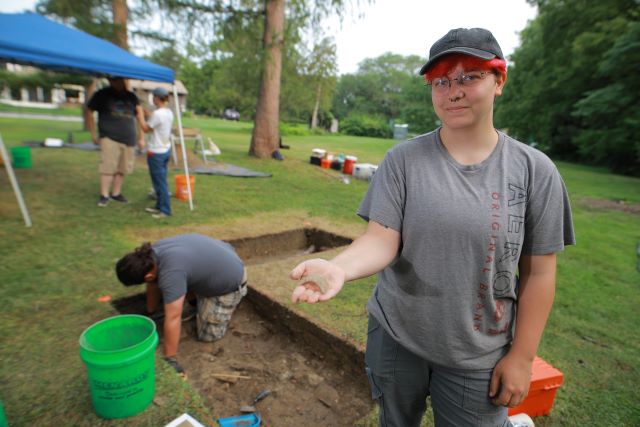Sociology and anthropology
Whether engaging in a sociological or anthropological path, our respective curricula in The University of Toledo Department of Sociology and Anthropology champion the exploration of multiple perspectives, numerous forms of evidence, and a concrete set of methodological practices that foster a distinct comprehension of human societies and cultures.
Programs
Department Honors in Sociology
Graduate Certificate in Applied Social Research
The Department of Sociology and Anthropology is part of the University of Toledo's PhD Program in Spatially Integrated Social Science. This program is designed around the application of geographic information science, spatial statistics, spatial econometrics and spatial analysis to study the spatial dimension of human and social dynamics, including interaction of individuals and society, government and market participants.
Sociology and Anthropology - How are they different and similar?
Sociology is the study of societies and all that happens within them. We are particularly interested in the institutions people create and the relationships they forge with each other. In our rapidly changing world, those institutions and relationships can maintain stability and continuity in communities – but also injustice and inequality. In other words, we study people; and we try to understand how all of us are changing with our times. We hope that a better understanding of how humans interact with each other will lead to more just and tolerant societies.
A degree in this discipline can prepare a student for a career in different areas including:
- public/social service
- administrative support
- management
- teaching
- medicine
- law
- research
Learn more about what you can do with a degree in Sociology.
Sociology Related Resouces
Anthropology is the study of what it means to be human in the past and present. Among the most diversified fields in the social sciences it is part history, part natural science, part literature, and part humanities. Thriving on this heterogeneity, anthropological training provides a multifaceted way to engage and understand our ever-interconnecting world[s]. Through intensive study of both past and present human cultures, students develop skill sets that both aid in the preservation of our cultural past and maintenance of the lived cultural present, and offer guidance as we move ahead toward a mutual future.
This discipline focuses on the past and present record of human societies and investigates human existence from several subfields, including:
- Archaeology (2025 Fieldschool info- click here)
- Biological (or Physical) Anthropology
- Cultural Anthropology
- Linguistic Anthropology
- Cultural Ecology
- Medical Anthropology
An Anthropology Degree prepares a student for the evolving job market of international (globalization), multiculturalism and other cultural shifts in today’s world. Additionally, students are exposed to investigative learning to look for solutions to issues facing humankind including sustainability, environmental, and the changing medical needs of the present generation.
Recognizing Where we Live and Work
The University of Toledo acknowledges that the region of Ohio in which the University sits on the ancestral homelands of the Odawa, Seneca and Erie as well as places of trade of Indigenous peoples, including the Anishinaabe (Ojibwa, Pottawatomi), Eel River, Lenape, Kaskaskia, Kickapoo, Miami, Munsee, Peoria, Piankashaw, Shawnee, Wea and Wyandot. As a steward of public lands, it is our responsibility to understand the history of the land, the peoples who came before us, and their continuing ties to this place. We thank them for their strength and resilience in protecting this land, and aspire to uphold our responsibilities according to their example.
- The Faculty and Staff of the Department of Sociology and Anthropology



